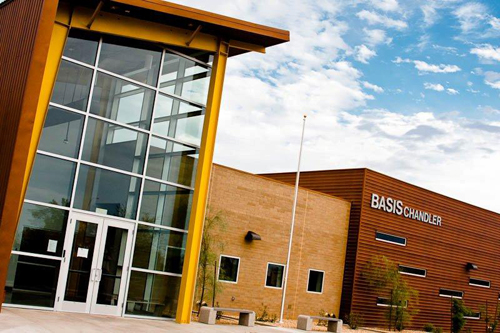
The co-founders of BASIS Schools, Michael and Olga Block, aimed to offer the type of education students receive in the top performing education systems around the world, the type of education that would help American students compete in the global economy.
Ten years after BASIS Schools opened its first campus in Tucson, Arizona, the school topped the national rankings, earning the #1 spot on Newsweek’s list of America’s Best High Schools, and was named a gold medal school by U.S. News & World Report. In addition to BASIS Tucson, today there are a total of 6 operating BASIS charter schools, including BASIS Scottsdale (2003), BASIS Oro Valley (2010), BASIS Chandler (2011), BASIS Peoria (2011), and BASIS Flagstaff (2011). There have been more awards and there are more schools on the way, including BASIS Phoenix (2012), BASIS Tucson North (2012), and BASIS DC (TBA).
What can the rest of the world learn from the BASIS Schools model?
I had the pleasure of chatting with Michael Block, Co-CEO of BASIS Educational Group. ڈاکٹر. Block received his B.A., M.A., and Ph.D. in Economics from Stanford University. Prior to BASIS, he was a Professor of Economics, Professor of Law and Director of the Office of Economic Education at the University of Arizona.
Can the BASIS Schools model be replicated across the nation?
We are expanding our model and opening BASIS schools in more locations. We have about 4,000 students attending six BASIS schools this year. Next year our programs may reach approximately 6,000 طالب علموں کو. This is still very limited reach when considering the millions of students receiving mediocre education across the US. The bigger issue might be ‘what is there to learn from the BASIS model?’ There are three points I think can be transferred in some manner.
سب سے پہلے, we have implemented very high academic standards that are internationally competitive and higher than any American state’s requirements. We also require students to demonstrate mastery of those standards before they can progress to the next grade. امریکہ میں, not only are standards abysmally low, but the tests used to examine students’ mastery of the standards are often poorly designed and unrelated to the content taught in school. Systems used around the world, such as the Cambridge International Exams, the College Board’s Advanced Placement exams, the Program for International Student Assessment, اور دوسروں, can assess mastery of high-level content. That is something I think we do well at BASIS – we teach to very high standards and then assess our students’ progress toward reaching those standards using internationally recognized assessments.
The second point is much more controversial. At BASIS we focus first and foremost on recruiting, hiring, and retaining teachers who are experts in the subject they teach. Whether or not the individual is certified to teach by the government or graduated from a school of education – جس, امریکہ میں, is not often the most distinguished academic institution – is of secondary importance. We believe it is critical that teachers possess a thorough knowledge of the material they present to their students and we believe it is more effective for subject experts to learn the craft of teaching than for pedagogical experts to learn the subject content they may be lacking. At BASIS, we have teachers in our classrooms starting in the Lower School grades that are subject experts; many possess masters and doctoral degrees.
آخر, Americans seem to have given up on teaching rigorous content in middle school. BASIS demonstrates that you can teach serious subject content in these grade levels. مجھے تم سے ایک مثال دیتا ہوں. We visited one of the great schools in America, Thomas Jefferson High School for Science and Technology in the suburbs of Virginia, and were incredibly impressed with the level of education the school imparts on its students. Thomas Jefferson utilizes a selective admissions process to enroll students who are prepared for their rigorous curriculum, but at BASIS we offer a similarly rigorous education to all students who wish to enroll. We are only able to do this because of our accelerated middle school curriculum. By starting at a modest 5th grade level and requiring students to learn more than a year’s worth of standards every year, we prepare students to take Honors and AP courses beginning in 9th grade and post-AP courses in 11th or 12th grade, just like their peers at Thomas Jefferson.
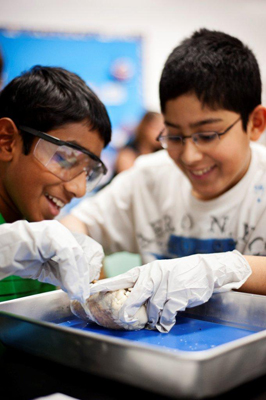
Are the BASIS schools for highly motivated students in certain subject areas only?
نہیں, the BASIS education is not focused on certain subject areas. We offer an accelerated program in all core subjects; تاہم, in contemporary America it seems schools that provide high-quality math and science education are pigeonholed. At BASIS, all students complete pre-calculus and take AP-level science courses in the 9th grade; نتیجے کے طور پر, BASIS is sometimes considered a math and science school. But while our students do outpace their peers in math and science, وہ بھی 11th گریڈ کے اختتام کی طرف سے ایک اے پی انگلش اور تین اے پی کی تاریخ کورسز کی ایک کم از کم مکمل, غیر ملکی زبان کے چھ سال میں مشغول, 8th گریڈ کے ایک کالج کی سطح کی معاشیات کورس لے, and participate in PE and fine arts classes throughout their academic careers. The BASIS education is much like the gymnasiums in central Europe; ہم لبرل آرٹس کے تمام میں ایک اعلی معیار کی تعلیم فراہم کرتے ہیں.
صرف انتہائی حوصلہ افزائی طلباء کے لیے اسکول ہے?
شاگرد ہونا ضروری نہیں ہے “تحفے میں” بیسیس پروگرام میں ایکسل کے لئے, but they do have to put in effort. We work very hard to create a culture of academic excellence in our schools. We hire educators who can convey passion for their subject in a way that teaches students that learning is exciting. As older students build a sense of personal responsibility for their education, they become models for younger students and create a culture of positive peer pressure. This culture motivates students to excel in their academic exploration and teaches them that success is the function of hard work.
What is your process for selecting a great teacher?
Finding talent is tough. We try to have a very broad base of candidates from which we select our teachers and often search worldwide to fill math and science positions. Our interviews are conducted first by veteran BASIS teachers and then by the Head of School. The candidates then participate in demonstration lessons – in which they teach current BASIS students for two class periods – which I think is unusual in public schools. This allows us to determine whether the candidate is capable of conveying advanced concepts to young students. We have the most senior staff members at BASIS do the final round of interviews before making a decision.
After our teachers are hired, we have a summer training session which all new teachers and many experienced teachers attend. The training session exposes new teachers to the BASIS philosophy and focuses on the teaching techniques used in many of our classrooms. آخر, we try to mentor teachers as they begin their careers at BASIS. We spend a good deal of time with them. The process of finding and developing teaching talent is difficult and of course we make our share of mistakes.
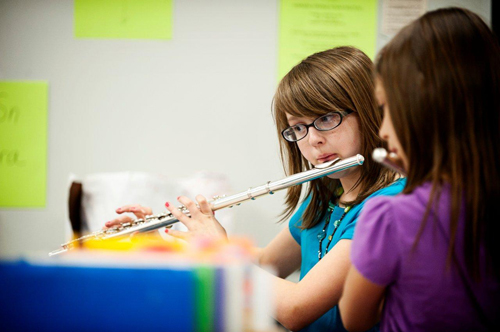
Why do we do so poorly in the PISA test?
PISA tests what an education system teaches its 15-year-old students, and in the United States we don’t teach math and science well in middle and high school. Many 10th graders in the US have not been exposed to the concepts of an Algebra 2 course and in a many states students can graduate without taking Physics. I think that is inexcusable.
I also believe the US education system focuses too much attention on inputs like teacher certification, class size, student-teacher ratio, length of the school day and school year, the form of supplemental services, the physical plant, and technology in the classroom, and too little attention on outputs like how well students are able to master important academic content. Focusing on inputs is diversionary and means educators and school leaders have less time to assess and improve the quality of the education they provide.
Final thoughts on the education reform issues we face in the US today?
There is one more issue I want to mention that I think BASIS is designed to get at. There are two achievement gaps in the US. The achievement gap that receives almost all the attention in the media – which is real and shameful – is the achievement gap between rural areas and the poorer sections of major cities on one hand and the suburbs across the country on the other. Another much more hidden achievement gap is the international achievement gap. What US suburbanites consider a “good education” is actually mediocre by international standards. That’s an important aspect of the BASIS experiment – our academic program addresses the international achievement gap that exists between the United States and other industrialized countries.
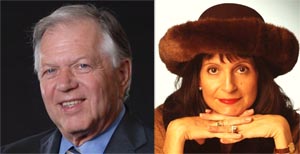
Photos courtesy of BASIS Schools, انکا.
میں تعلیم کے لئے گلوبل تلاش, سر مائیکل باربر سمیت میرے ساتھ اور عالمی سطح پر معروف فکری رہنماؤں (برطانیہ), ڈاکٹر. مائیکل بلاک (امریکہ), ڈاکٹر. لیون Botstein (امریکہ), ڈاکٹر. لنڈا ڈارلنگ-ہیمنڈ (امریکہ), ڈاکٹر. مادھو چوہان (بھارت), پروفیسر مائیکل Fullan (کینیڈا), پروفیسر ہاورڈ گارڈنر (امریکہ), پروفیسر کریں Yvonne ہلمین (نیدرلینڈ), پروفیسر کرسٹن Helstad (ناروے), جین Hendrickson نے (امریکہ), پروفیسر گلاب Hipkins (نیوزی لینڈ), پروفیسر Cornelia Hoogland (کینیڈا), مسز. چینٹل کوفمین (بیلجیم), پروفیسر ڈومینک Lafontaine (بیلجیم), پروفیسر ہیو Lauder (برطانیہ), پروفیسر بین لیون (کینیڈا), پروفیسر بیری McGaw (آسٹریلیا), پروفیسر R. نٹراجن (بھارت), ڈاکٹر. ڈینس پوپ (امریکہ), شریدر رازگوپالن (بھارت), ڈاکٹر. ڈیانے Ravitch (امریکہ), سر کین رابنسن (برطانیہ), پروفیسر Pasi Sahlberg (فن لینڈ), Andreas کی Schleicher (پیسا, او ای سی ڈی), ڈاکٹر. انتھونی Seldon نے, ڈاکٹر. ڈیوڈ Shaffer کے (امریکہ), ڈاکٹر. کرسٹن عمیق کر رہے ہیں (ناروے), چانسلر اسٹیفن Spahn (امریکہ), ایوز Theze (اسکول Français کی امریکی), پروفیسر چارلس Ungerleider (کینیڈا), پروفیسر ٹونی ویگنر (امریکہ), پروفیسر Dylan کے Wiliam (برطانیہ), ڈاکٹر. مارک Wormald (برطانیہ), پروفیسر تیو Wubbels (نیدرلینڈ), پروفیسر مائیکل نوجوان (برطانیہ), اور پروفیسر Minxuan جانگ (چین) وہ تمام اقوام کو آج سامنا ہے کہ بڑی تصویر تعلیم سوالات دریافت کے طور پر. تعلیم کمیونٹی پیج کے لئے گلوبل تلاش
C. M. روبن وسیع پیمانے پر پڑھا آن لائن سیریز کے مصنف ہیں, تعلیم کے لئے گلوبل تلاش, اور بھی تین bestselling کتابوں کے مصنف ہیں, سمیت Wonderland میں یلس اصلی.



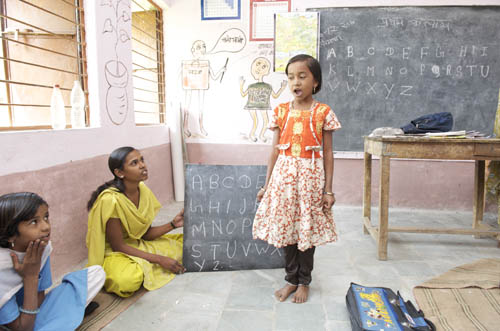
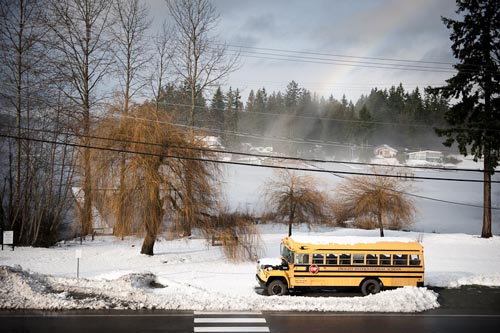
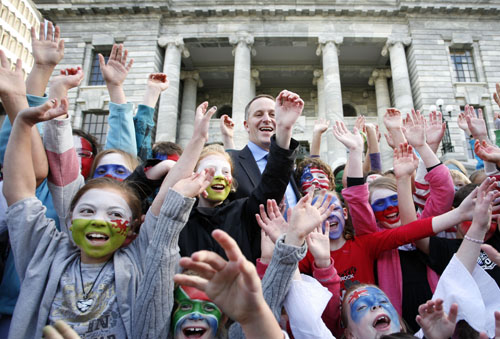
حالیہ تبصرے